Taste of Honey, A (1961)
“We don’t ask for life; we have it thrust upon us.”
|
Synopsis: |
|
Genres, Themes, Actors, and Directors:
Review: We can see from the film’s opening moments what a pickle she’s in, given her mother’s penchant for evading responsibility at every turn. (Bryan is shown below leaving her residence without paying back rent, with Tushingham following.) Indeed, Bryan is truly a sorry lot, seeking escape and a sense of purpose at a local pub where a glass-eyed lout (Stephens) takes a fancy to her: For better or for worse, Stephens can’t stand Tushingham — which is refreshing given that it breaks with expectation (we anticipate he’ll instantly hit on his aging fiancee’s nubile daughter), but also leads to Tushingham being abandoned yet again as her mother chooses Stephens over her. It’s no wonder Tushingham finds solace in the caring arms of Danquah, who she fantasizes is a descendant of African princes: The screenplay doesn’t make much of the inter-racial aspect of their romance other than Tushingham reassuring Danquah that her mother won’t care he’s Black (not quite true). Meanwhile, the second half of the film focuses on another “controversial” topic of the day: homosexuality. Shortly after being introduced to Murray Melvin’s Geoffrey (the pair meet in the shoe shop where Tushingham works): … we learn that he was kicked out of his apartment for being caught having sex with a man. (I immediately thought of another British film from that year, Victim, which addresses the same topic from a more central angle.) Tushingham’s Jo — not the most mature of young women — teases Melvin endlessly about this, wanting to know details of his sex life (“You can stay if you tell me what you do,” she bargains with him. “Go on, Geoffrey. I’ve always wanted to know about people like you.”) Eventually they develop a workable friendship, with Melvin clearly taking solace in the fact that he’s found a purpose in his life: caring for Tushingham. (“Somebody’s got to look after you. You can’t look after yourself, that’s obvious.”) As he tells Tushingham:
Meanwhile, Tushingham continues to struggle with her unwanted pregnancy. (“I don’t want to be a mother! I don’t want to be a woman!” she wails at Melvin when he attempts to give her a “training doll” from a local clinic.) We grow to care for these individuals, and stay invested until the very end (which is distressing, but perhaps realistic). Adding to our engagement is ample use of authentic locales around or near Manchester, nicely filmed by DP Walter Lassaly. This “kitchen sink drama” remains worth a look by film fanatics, as a valuable female-centric entry in the genre. Notable Performances, Qualities, and Moments:
Must See? Categories
Links: |
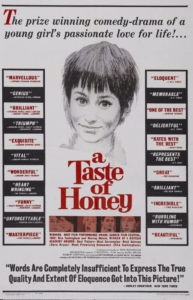
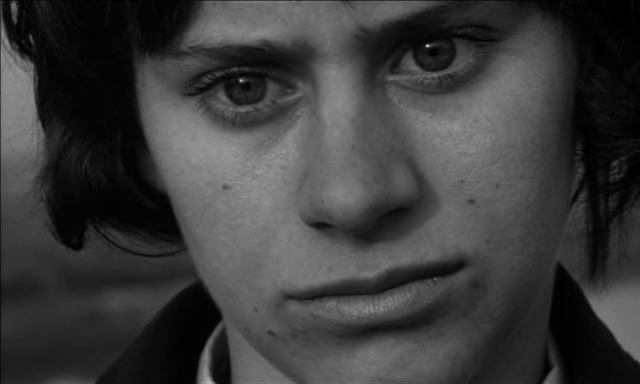


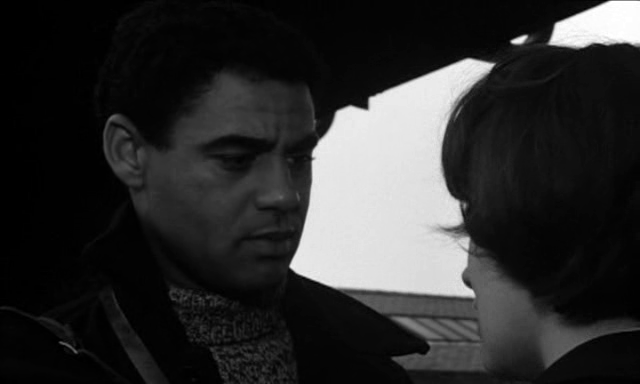
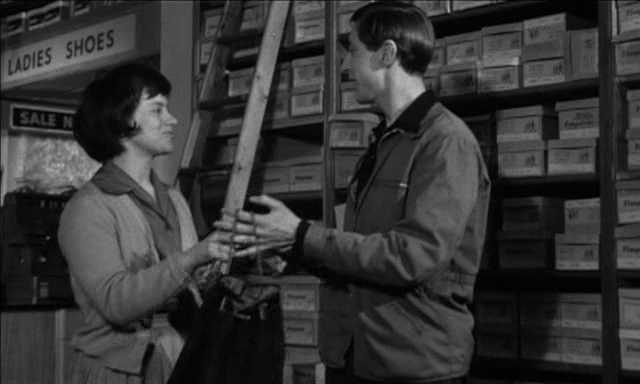
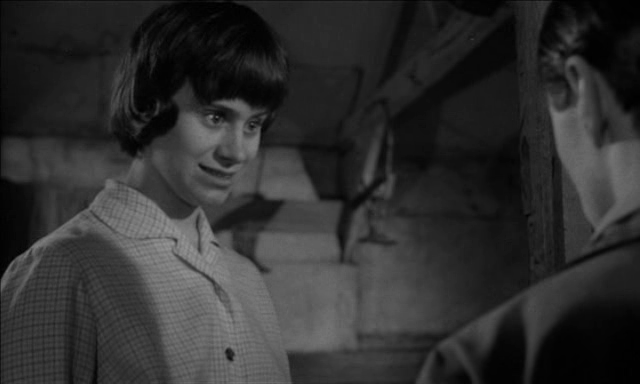
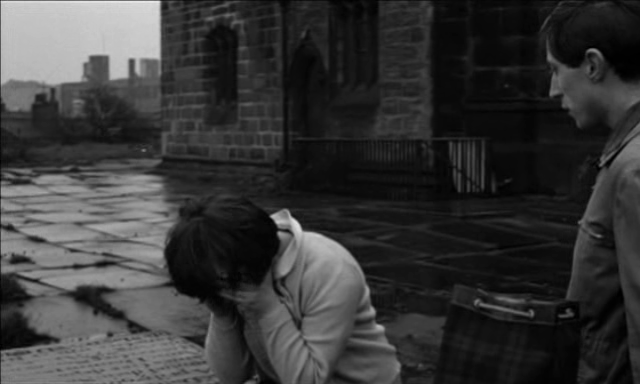

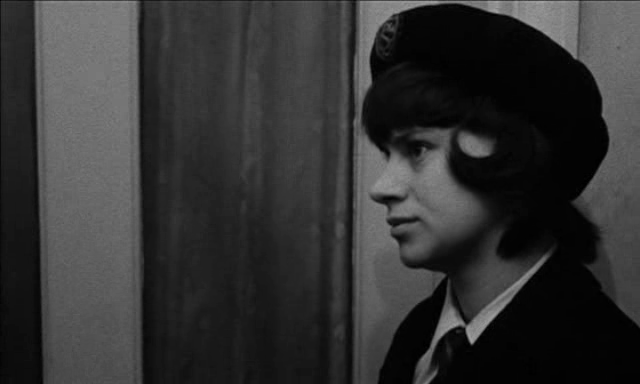
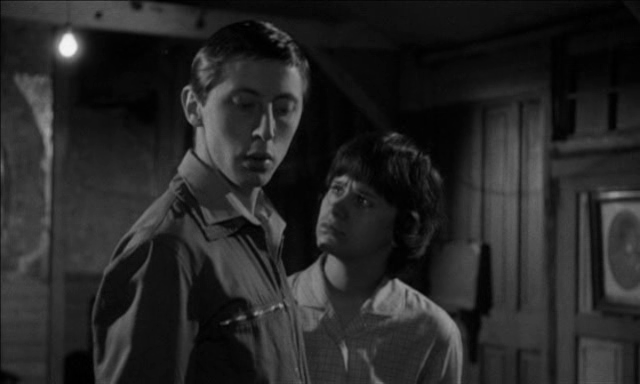


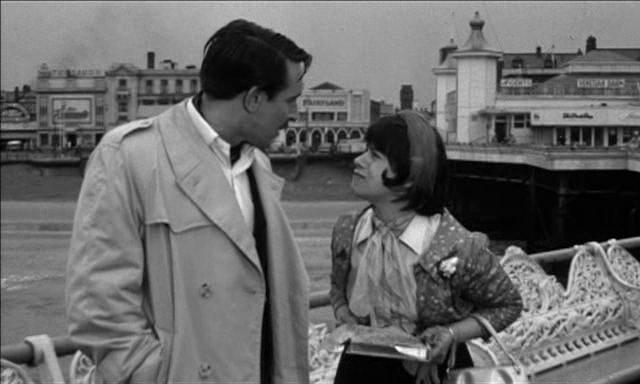
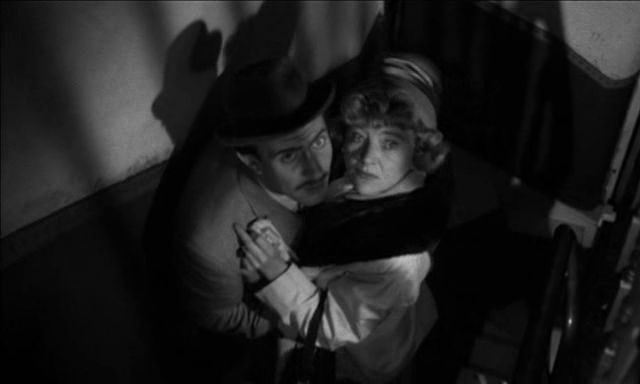
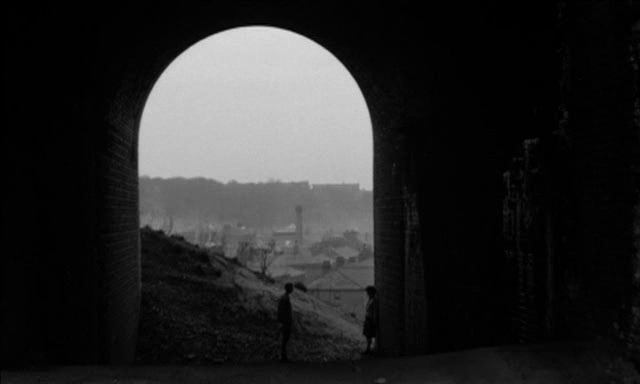
One thought on “Taste of Honey, A (1961)”
A once-must, as a prime example of the ‘kitchen sink’ wave.
Some other films in this British genre are much harder to take. Not that ‘Taste’ is a walk in the park but, aside from being one of Richardson’s more successful films, we’re allowed more of an opportunity to get under the skin of the characters.
Of course, in ‘kitchen sink’ manner, there’s a lot of arguing. ~ which makes it all the more illuminating when Melvin tries to stop a fight between Bryan and Tushingham and Bryan responds with “Oh shut up, we enjoy it.”
There are sudden levels here that the audience is left to fill in – with meaningful looks that come during pauses.
Bryan’s character is of particular interest because she’s much less of a harridan than we might expect – though she has such moments. Her understanding of her relationship with her daughter can be tenuous but then a sudden strength about it will breeze in. (Her ultimate, inflexible decision re: Melvin may be sneaky but it is also pure Mama Lion.)
All told, it’s an awkward film – which is a large part of its point – and it reaffirms that life is a mix of challenge, surprise, disappointment and the mystery of personalities.